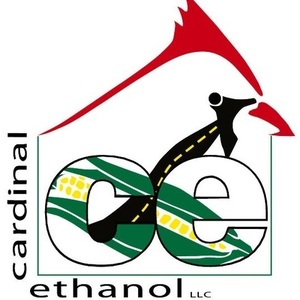Cardinal Ethanol, Vault 44.01 form joint venture for CCS project

January 30, 2023
BY Cardinal Ethanol LLC
Cardinal Ethanol LLC and Vault 44.01 Ltd. announced today that, through their affiliate companies, they have formed a joint venture to design, implement, and operate a carbon dioxide (CO2) capture and sequestration (CCS) project at Cardinal’s ethanol production facility near Union City, Indiana. The joint venture is structured with each party controlling an equal interest in a newly formed limited partnership named One Carbon Partnership LP.
Cardinal’s facility produces approximately 135 million gallons of ethanol per year, which generates approximately 400,000 metric tons of CO2 as a by-product of the corn fermentation process.
Advertisement
Advertisement
One Carbon Partnership plans to construct a facility to capture the CO2 generated from the ethanol production process and safely and permanently store such emissions deep underground in a secure geologic reservoir, thereby substantially reducing the CO2 emissions from the ethanol production process. While the project is still in its early stages and subject to customary variables that could influence the project, the partnership has submitted a Class VI permit application to EPA Region 5 in support of the project and has received a completeness determination from the EPA. The partners have engaged with local landowners and communities about the potential project and are very pleased with the support they have received.
Cardinal will continue to provide high quality jobs and economic opportunity while working towards minimizing the amount of CO2 emitted into the earth’s atmosphere.
“We are committed to enhancing shareholder value through employing the latest technology in the production of clean, low carbon intensity and environmentally friendly bioethanol. Partnering with Vault 44.01 on this CCS project is another step in Cardinal Ethanol’s commitment to further lower our carbon impact and protect our environment. This partnership aligns with Cardinal Ethanol’s goals and keeps us on a path to zero emission liquid fuels,” said Jeff Painter, CEO, Cardinal ethanol, LLC.
Advertisement
Advertisement
“We are pleased to be working with the excellent team at Cardinal and are excited to have reached several important milestones in the development of this high quality, early-to-market CCS project. This project with Cardinal exemplifies our view that the lowest cost option for CCS is often to find a local solution, where that’s possible,” said Scott Rennie, CEO, Vault 44.01.
Related Stories
The USDA’s Risk Management Agency is implementing multiple changes to the Camelina pilot insurance program for the 2026 and succeeding crop years. The changes will expand coverage options and provide greater flexibility for producers.
EcoCeres Inc. has signed a multi-year agreement to supply British Airways with sustainable aviation fuel (SAF). The fuel will be produced from 100% waste-based biomass feedstock, such as used cooking oil (UCO).
SAF Magazine and the Commercial Aviation Alternative Fuels Initiative announced the preliminary agenda for the North American SAF Conference and Expo, being held Sept. 22-24 at the Minneapolis Convention Center in Minneapolis, Minnesota.
Saipem has been awarded an EPC contract by Enilive for the expansion of the company’s biorefinery in Porto Marghera, near Venice. The project will boost total nameplate capacity and enable the production of SAF.
Global digital shipbuilder Incat Crowther announced on June 11 the company has been commissioned by Los Angeles operator Catalina Express to design a new low-emission, renewable diesel-powered passenger ferry.
Upcoming Events










